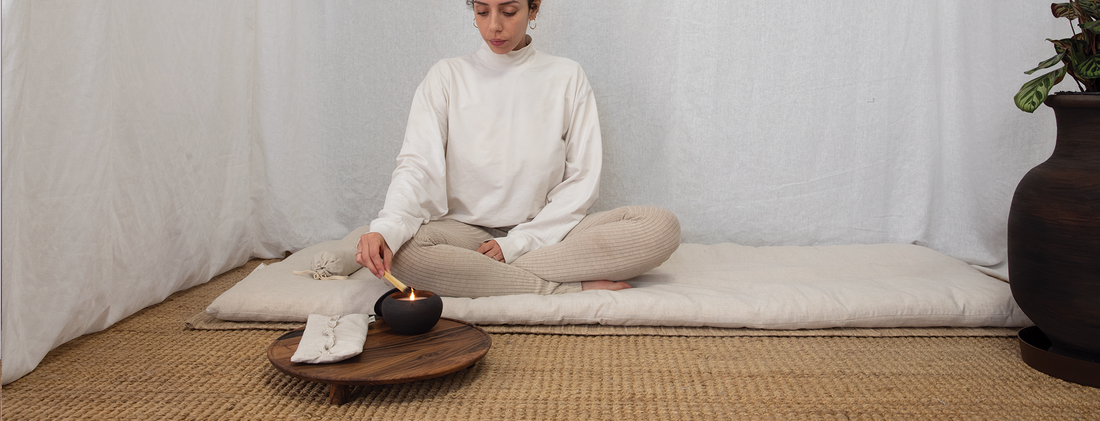Why meditate?
Meditation is a mental practice of concentration, often on one's own breathing. The earliest records of this ancient practice come from India, and it is probably best known as one of the practices of the Buddhist religion. Since then, meditation has evolved beyond religious practice to become a mental health and hygiene tool practiced worldwide.
Although this list is not exhaustive, we would like to outline here the benefits of practicing meditation.
Improve concentration
One meditation technique involves connecting with the breath. We are invited to observe our breathing and focus our attention on the air coming in as we inhale and the air going out as we exhale, sensing it on a sensory level. This simple exercise trains the brain to maintain its attention on the action of breathing.
Connect with your body and your breathing
As explained above, meditation invites us to reconnect with our breathing. Breathing is an automatic mechanism that we no longer pay much attention to, but through this practice, we are led to reconnect with our breath, which is nothing less than the manifestation of life within us. Another meditation method is the "body scan," in which the mind focuses its attention on different parts of the body, one after the other, to feel and become aware of them. This too is an excellent concentration exercise.
Cultivate clarity and presence of mind
When we practice connecting with our breath, we anchor ourselves in the pure present moment. Through our sensations, this presence, when cultivated through repeated practice, simply begins to replace internal dialogues often involving rumination, projection, or analysis. If we are busy connecting and feeling our breath, we are not busy thinking about anything else that is not anchored in this present moment. In this way, we free up space to better welcome what comes to us and approach it with greater clarity and perspective.
Knowing and understanding each other better
Meditation is also an invitation to explore our inner world. For example, if you experience a strong negative emotion and decide to meditate on it, without judgment, simply by sitting and retracing the path of the emotion's manifestation, you will learn a lot about yourself and what triggers these emotions. Of course, this exercise requires great honesty and self-compassion. But from that moment on, you will know what causes you to react to these emotions, and you will be able to make the necessary adjustments so that you no longer react, but rather observe.
Better manage your emotions
Thus, through this attentive listening to ourselves, we develop the ability to better manage our emotions, because we no longer position ourselves as victims. We understand the role that our own thought patterns play in triggering our emotions and how these influence our behavior.











